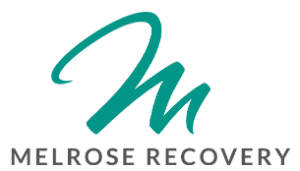What Are Whippets
What Are Whippets – Welcome to Melrose Recovery, your pathway to transformation and healing. Located in the vibrant heart of Los Angeles, California just moments away from iconic Hollywood and the picturesque beaches of Santa Monica and Venice, we are dedicated to changing lives. Since 2015, our comprehensive whippet drug addiction and abuse treatment approach encompasses detoxification, residential care, and aftercare services, all tailored to meet each individual’s unique needs on their recovery journey.
Led by a compassionate team of addiction professionals and counselors, we offer a range of therapy programs designed to support and guide individuals suffering Galaxy Gas withdrawal toward lasting sobriety. At Melrose Recovery, we believe in the power of personalized care and diverse treatment options to pave the way for a brighter future.

Whippets: Effects, Risks, and Treatment Options
Whipped cream is a common and seemingly innocent topping for desserts, coffee, and more. But hidden within its container is a component that can be misused as a recreational drug—nitrous oxide, commonly referred to as whippets. Though it might seem harmless or even humorous at first glance, abusing whippets can lead to serious and sometimes life-threatening consequences.
This article explores what whippets are, their effects on the body and brain, the associated dangers, and the available treatment options for those struggling with addiction.
What Are Whippets?
Whippets (also spelled whippits or whip-its) are small metal cartridges filled with nitrous oxide (N₂O)—a gas used legally in medical settings and in food preparation. These cartridges are most often used in whipped cream dispensers, but when misused, they can produce a quick high.
Slang terms for whippets include:
-
Bulbs
-
Nangs or Nangers
-
Laughing gas
-
Hippie crack
Some users inhale nitrous oxide directly from whipped cream canisters, cartridges (using a “cracker”), or even larger tanks, which are sometimes obtained illegally.
What Do Whippets Feel Like?
Inhaling nitrous oxide causes an almost immediate high that typically lasts just a few minutes. Common effects include:
-
Euphoria and uncontrollable laughter
-
Lightheadedness or dizziness
-
A floating or weightless sensation
-
Altered sense of time and space
-
Relaxation or mild sedation
-
Numbness or tingling
-
Visual or auditory distortions
Because the high is so short-lived, users often inhale repeatedly in a short period, which increases the risk of overdose and oxygen deprivation.
Where Are Whippets Obtained?
Whippets are legally sold for culinary purposes and can be found in stores that sell whipped cream dispensers. However, recreational use of nitrous oxide is illegal in many regions. Some individuals may also access the gas from other sources, including:
-
Balloons passed around at parties
-
Tanks sold online or through illicit channels
-
Certain types of spray cans (though these may contain other harmful chemicals)
What Is Galaxy Gas?
Galaxy Gas is an Atlanta-based brand that sells nitrous oxide—an odorless, colorless, non-flammable gas commonly referred to as “laughing gas” or “whippets.” Though it’s marketed for culinary use, such as flavoring whipped cream with options like mango smoothie or blue raspberry, it’s more widely known for its use as a recreational inhalant.
Nitrous oxide produces a quick high marked by euphoria and lightheadedness, as it temporarily disrupts the central nervous system by reducing oxygen to the brain. The high lasts only a few minutes, leading users to inhale repeatedly in short intervals. Despite being legal to purchase in most U.S. states without a license, many jurisdictions have started restricting sales to individuals over 18. Recreational use, however, remains illegal.
Galaxy Gas explicitly states on its website that intentionally inhaling its products is illegal, and includes multiple disclaimers. Still, the brand has gained popularity primarily for its misuse rather than its intended culinary function.
Are Whippets Dangerous?
Yes. Although nitrous oxide is used safely in controlled medical settings, recreational use comes with significant health risks. One of the most dangerous aspects of whippet use is the lack of control over the dose and purity of the gas. Inhaling contaminated or excessive amounts can lead to severe health consequences.
Short-Term Effects of Whippet Use
Short-term effects can vary but commonly include:
-
Slurred speech
-
Confusion
-
Dizziness
-
Loss of balance or coordination
-
Nausea or vomiting
-
Hallucinations
-
Muscle weakness
These effects can impair judgment and motor skills, increasing the risk of accidents and injury.
Long-Term Effects of Whippet Abuse
Frequent or long-term use of whippets can cause serious damage to the body and brain, including:
-
Brain damage due to oxygen deprivation (hypoxia)
-
Nerve damage, especially related to vitamin B12 deficiency
-
Liver and kidney damage
-
Weakened immune system
-
Chronic numbness or tingling in limbs
-
Depression, anxiety, and mood disorders
-
In severe cases, paralysis or death
Impact on the Brain
Nitrous oxide interferes with the brain’s neurotransmitters and oxygen supply, leading to:
-
Temporary disruption of normal brain function
-
Memory issues and cognitive decline
-
Endorphin release that creates a reinforcing euphoric effect
-
Neurological damage due to vitamin B12 depletion
-
Reduced oxygen to the brain (hypoxia), causing dizziness and fainting
Repeated use can cause permanent changes to brain function and structure.
Can You Get Addicted to Whippets?
Yes. While not as physically addictive as some substances, psychological dependence on whippets is real. Users may find themselves chasing the brief euphoric high more frequently, which can escalate into a harmful pattern of abuse. Over time, this can lead to significant health problems and impaired functioning.
How Long Does Nitrous Oxide Stay in the Body?
Nitrous oxide is expelled quickly from the body, mainly through the lungs. Most people eliminate it within 1 to 3 hours. However, its neurological and psychological effects may linger much longer, especially after prolonged or heavy use.
Treatment for Whippet Addiction
Recovery is possible, and treatment often includes a multi-step approach:
-
Behavioral Therapy: Cognitive Behavioral Therapy (CBT) helps users understand and manage the emotions and triggers behind their substance use.
-
Medication: Antidepressants or anti-anxiety medications can support recovery by addressing underlying mental health issues.
-
Support Groups: Peer support in a group setting can be a powerful motivator for long-term recovery.
Seeking Help for Whippet Addiction
If you or someone you know is struggling with whippet use, don’t wait. Reach out to a rehab facility or medical professional. Many centers specialize in treating inhalant abuse and provide the tools needed for recovery—medically, emotionally, and psychologically.
With the right support, overcoming whippet addiction is not only possible—it’s likely.
Frequently Asked Questions About Whippets Drug
What is a whippet drug?
Answer: A whippet drug refers to the recreational inhalation of nitrous oxide, often dispensed from whipped cream canisters or small cartridges (whippets).
What is nitrous oxide?
Answer: Nitrous oxide is a colorless, non-flammable gas used medically for anesthesia and pain relief, and in food products like whipped cream as a propellant.
How are whippets used recreationally?
Answer: Users release nitrous oxide from cartridges into a balloon or bag, then inhale the gas to experience a brief euphoric high.
Why are they called “whippets”?
Answer: The term comes from the brand name “Whip-It!”—a company that makes whipped cream chargers, which are repurposed for drug use.
What effects do whippets have on the body?
Answer: Short-term effects include euphoria, dizziness, laughter, distorted perceptions, and sometimes hallucinations.
Are whippets legal?
Answer: Nitrous oxide is legal for culinary and medical use but illegal to sell or use for recreational purposes in many jurisdictions.
Can using whippets be dangerous?
Answer: Yes. Risks include oxygen deprivation, nerve damage, unconsciousness, and even death from asphyxiation.
What is “hypoxia”?
Answer: Hypoxia is a condition where the body or brain doesn’t get enough oxygen—common with nitrous oxide abuse.
How long do the effects of a whippet last?
Answer: The high usually lasts 30 seconds to 2 minutes, though effects like dizziness may linger longer.
Are whippets addictive?
Answer: While not physically addictive like opioids, whippets can lead to psychological dependence due to repeated use.
What are the signs someone is abusing whippets?
Answer: Frequent possession of whipped cream chargers, balloons, unexplained euphoria, memory lapses, or disorientation.
What are “nangs”?
Answer: “Nangs” is another slang term for nitrous oxide, commonly used in Australia.
Can whippet use lead to long-term health problems?
Answer: Yes. Long-term use can cause vitamin B12 deficiency, nerve damage, and neurological disorders.
What is B12 deficiency and why does it matter?
Answer: Nitrous oxide depletes vitamin B12, leading to nerve damage, numbness, and trouble walking or thinking clearly.
Can using whippets cause death?
Answer: Yes. Though rare, inhaling nitrous oxide without oxygen can result in asphyxiation or cardiac arrest.
Are whippets used at parties or clubs?
Answer: Yes, whippets are sometimes abused at raves or parties for their quick euphoric effects.
How accessible are whippets?
Answer: They are easily available in stores and online, since they’re intended for culinary use.
Can teenagers access whippets?
Answer: Unfortunately, yes. Teens may misuse whipped cream chargers due to their easy availability.
What should you do if someone passes out after using a whippet?
Answer: Call emergency services immediately and ensure the person gets fresh air and medical attention.
Can whippet use affect the brain?
Answer: Yes. Long-term abuse can lead to cognitive impairment, memory loss, and brain damage.
Are there laws against using whippets recreationally?
Answer: Many regions have laws banning recreational use or selling nitrous oxide for intoxication.
How can someone stop using whippets?
Answer: Seek help from a medical or mental health professional; therapy or addiction counseling may help.
Is there a withdrawal period for nitrous oxide?
Answer: Withdrawal is usually psychological—cravings, anxiety, or depression—but not typically physical.
What should parents look out for?
Answer: Empty whipped cream chargers, unusual balloons, dizziness, or short-term memory problems.
Where can someone get help for nitrous oxide abuse?
Answer: Addiction centers, therapists, hotlines, or substance abuse programs can provide support.
Don’t Wait to Look for a Drug Addiction Treatment Program
Health Insurance PPO Plans for Whippets Drug
PPO Plans for Melrose Recovery Whippets Rehab in Los Angeles, California
Finding effective treatment for drug and alcohol addiction is one of the most important steps in the recovery journey. For many individuals and families, navigating how to pay for rehab can be a major concern. Fortunately, Melrose Recovery, a leading addiction treatment center in Los Angeles, California, accepts a wide range of PPO (Preferred Provider Organization) health insurance plans, making high-quality care more accessible and affordable.
Why Choose Melrose Recovery?
Melrose Recovery offers a structured and supportive environment for individuals seeking recovery from substance use disorders. Their programs include:
-
Medical Detox
-
Residential Inpatient Treatment
-
Dual Diagnosis Treatment
-
Individual and Group Therapy
-
Aftercare Planning
What sets Melrose apart is their client-centered approach, experienced clinical team, and commitment to long-term recovery. Located in Los Angeles, the facility provides a safe and comfortable setting to begin healing.
What Are PPO Insurance Plans?
PPO insurance plans allow policyholders to see healthcare providers both inside and outside of their insurance network, usually without a referral. When it comes to addiction treatment, this flexibility can be vital.
Key PPO benefits for rehab coverage:
-
Out-of-network options: You can still receive coverage for facilities not directly in your provider’s network.
-
No referral needed: You don’t need a referral from a primary care physician to start treatment.
-
More provider choices: PPO plans give you more freedom to choose the rehab facility that fits your needs.
Does Melrose Recovery Accept My PPO Insurance?
Melrose Recovery works with most major PPO insurance providers, including but not limited to:
- Aetna
- AmeriHealth
- Anthem
- Blue Cross Blue Shield
- Cigna
- Hawaii Medical Service Association (HMSA)
- Humana
- Kaiser Permanente
- Medical Mutual
- Premera Blue Cross
- UnitedHealthcare
Melrose Recovery’s admissions team is available 24 hours a day 714-442-7782 to verify your insurance benefits quickly and confidentially. This process helps determine your coverage, deductible, co-pays, and out-of-pocket maximums before starting treatment.
Verifying Insurance Coverage
To find out if your PPO insurance plan covers treatment at Melrose Recovery:
-
Call Melrose Recovery directly – Speak with an admissions specialist who can walk you through the insurance verification process.
-
Submit insurance info online – Many treatment centers, including Melrose, offer a secure online form for quick verification.
-
Check with your insurer – You can also contact your insurance company directly and ask about your behavioral health benefits.
The Importance of Getting Help
Addiction is a chronic and progressive condition—but with the right support, recovery is absolutely possible. By accepting a variety of PPO plans, Melrose Recovery helps reduce financial barriers to care, so individuals and families can focus on healing rather than costs.
Take the First Step Today
If you or a loved one is struggling with addiction, don’t wait. Melrose Recovery in Los Angeles offers compassionate, evidence-based care in a supportive setting. With PPO insurance coverage, treatment may be more affordable than you think.
Contact Melrose Recovery today to learn more about admissions and insurance verification. Your path to recovery can start now.





Get In Touch
info@melroserecovery.com
501 North Mariposa Ave, Los Angeles, CA 90004



